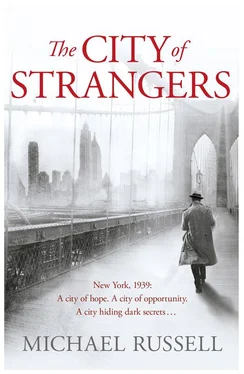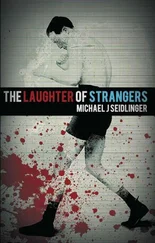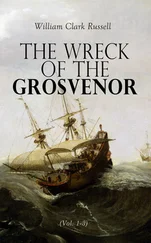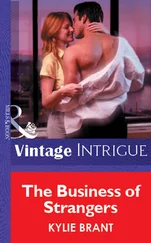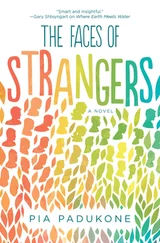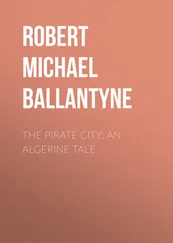‘New York too.’
‘Business?’
‘Of a sort.’
‘And what sort of business are you in?’
Stefan hesitated. He had had no instructions to keep what he was doing a secret, at least as far as it simply concerned who he was. The details were a different matter. But the fact that he was a policeman didn’t tell anybody anything significant; in fact it provided good reasons, without his appearing rude, for him to keep his business to himself.
‘I’m a guard, a policeman.’
The effect of this on Dominic Carroll was unexpected. He looked puzzled, and if not quite angry, irritated. He didn’t like it at all. Then his expression changed and he smiled, pushing away whatever had been there.
‘I know what a guard is, Mr Gillespie. I’m not a stranger to Ireland.’
He spoke easily, wiping out any traces of the feelings that he hadn’t been able to hide seconds earlier. But he was no longer as relaxed as he had been, and as the conversation continued Stefan couldn’t help feeling he was being watched and weighed up. It was hard to work out what was going on. It wasn’t much now, and if he hadn’t registered those first, unfathomable reactions from the American, he probably wouldn’t have noticed at all. Carroll was suspicious; for some reason he was uneasy that Stefan was a guard.
However, time passed and bit by bit the suspicion seemed to fade. Dominic Carroll was a good talker, and like a lot of good talkers he was used to being listened to. Once it was clear that Stefan Gillespie had nothing to say about his business, other than he was doing a job for the Gardaí and would be meeting some NYPD officers, he left the subject alone, except to announce that he knew almost every senior police officer in New York. As Stefan hadn’t got the faintest idea who he’d be talking to, or what would be happening once he arrived in Manhattan, the string of names, all of them Irish, had little effect. The NYPD was soon forgotten but New York was not.
The man who had been born in Carrickfergus was proud of the city he now lived in. He had no doubt whatsoever that it was the greatest city on the face of the earth and that if there was anywhere that represented the future, the future of everything, it was New York, his city. It was no accident that the greatest World’s Fair the world had ever seen had just opened its gates in New York’s Flushing Meadows. Dominic Carroll had played some part in putting that together. The World’s Fair was the world of tomorrow in a box, tied up with red-white-and-blue, star-spangled ribbon and more magical than the stars in the heavens at night.
‘When you fly west, Mr Gillespie, you’re flying into the future. But it’s not just America’s future. One day we’ll bring that future back to Ireland!’
It was hard not to share his enthusiasm. He seemed to have a lot of business interests, so many that it was a struggle to follow them as he fired out details of his early career, his failures and successes, his various bankruptcies and disasters, in building and finance and property speculation. At one point it seemed he had been responsible for building most of the skyscrapers of New York over the past thirty years personally. He caught the amusement in Stefan Gillespie’s eyes, and laughed himself, enjoying his own pomposity and yet happy enough to puncture it.
‘It’s my city. It belongs to me. Every New Yorker feels like that.’
Over dinner the talk turned to families. Here Dominic Carroll seemed more reticent. He had sons, grown-up sons, but no grandchildren yet. He didn’t say much about his sons, for a man of such far-ranging enthusiasms, but it was enough to tell Stefan that the American wasn’t as close to them as he wished. Somewhere in there was a failure he didn’t want to talk about.
He let Stefan talk more now, and clearly he could listen too when he wanted to, or when the topic of conversation wasn’t so easy. Details of Stefan’s life on the farm at Kilranelagh absorbed him and amused him, but it was when he told him about Maeve that something changed. Stefan retold the story of his wife’s death, six years ago, in the matter-of-fact way he always did. It was simply part of who he was. The American listened intently, then reached out his hands and clasped Stefan’s across the table. By now Stefan had had a bit to drink himself; his acquaintance was ahead of him. Carroll shook his head sadly, knowingly. He had found a bond between them. He was a sentimental man; sometimes sentiments shared were a kind of friendship for him.
‘My wife died when my eldest was thirteen. It wasn’t so unexpected. She’d been ill a long time, and however much money you’ve got, when they can’t do anything, it’s no use to you. You keep thinking you’ll find a doctor who knows the cure, if only you look enough and pay enough. But you can’t pay your way out of God’s decisions. You can’t pray your way out either.’
As he said the last words he crossed himself.
They walked back to their seats from the dining room with glasses of brandy, quieter than they’d come. Stefan had no desire to continue talking about the past; it was enough to say it. But the American wouldn’t let it go.
‘You’ve never remarried?’ he asked as they sat down.
‘No.’
‘You’re still a young man.’
‘I’m not avoiding it. It’s just something that hasn’t happened.’
‘You should count your blessings,’ said the American. It was an abrupt change of tone. Where his words had shown sympathy, consideration, shared understanding, there was a surprising edge now, something almost bitter. He looked away, staring at the window. It was dark outside now; all he was staring at was the black hole that was the night sky. ‘You should be careful. It was the biggest mistake of my life. If you want sex, you can buy it. You can buy as much as you want. But if you think you can replace the one love you ever had, if you think you can even come close, forget it.’
Stefan didn’t reply. The new tone of voice had unsettled him. It contained an appeal to an intimacy he didn’t want and didn’t feel he liked very much. Whatever the man was talking about it was his and his alone.
For a moment the American said nothing either. He seemed to realise that he had taken a direction he shouldn’t have done and had revealed more of himself than he was comfortable with. He looked up and smiled again. ‘That’s the trouble with a journey like this. Nothing to do but drink and they chuck it at you like there’s no tomorrow.’
Stefan nodded. ‘I’ve had enough. I wouldn’t mind some more coffee.’
Carroll called to the galley for two coffees. He turned back to Stefan.
‘You don’t make much sense to me. You mind me saying it?’
‘It depends what you mean,’ laughed Stefan.
‘I’ve got your boy, and why you’re where you are, looking after him, and I’ve got what happened to your wife. I’ve got the farm and your mam and your dad. But I haven’t got you. I haven’t got you at all, you know that? What are you doing sitting on your arse in a country police station, running in drunks and, what was it, raiding the village hall to see if there’s any illegal dancing going on! Jesus!’ He grinned, entertained by the idea. ‘That’s not you, Sergeant Gillespie, not you! I didn’t have to talk long to see that.’
‘Someone’s got to do it,’ shrugged Stefan, and attempted a smile.
The look of suspicion was back in Dominic Carroll’s eyes. It struck Stefan forcibly that although the stranger was smiling at him, he somehow didn’t believe he was who he said he was. They’d talked about all sorts of things. Yet there was a sense now, as he watched the older man watching him, that the American had been probing, trying to find out something when there was nothing to find out. Stefan needed a break from the conversation. He leant across to the newspapers Carroll had been reading and picked one up.
Читать дальше
